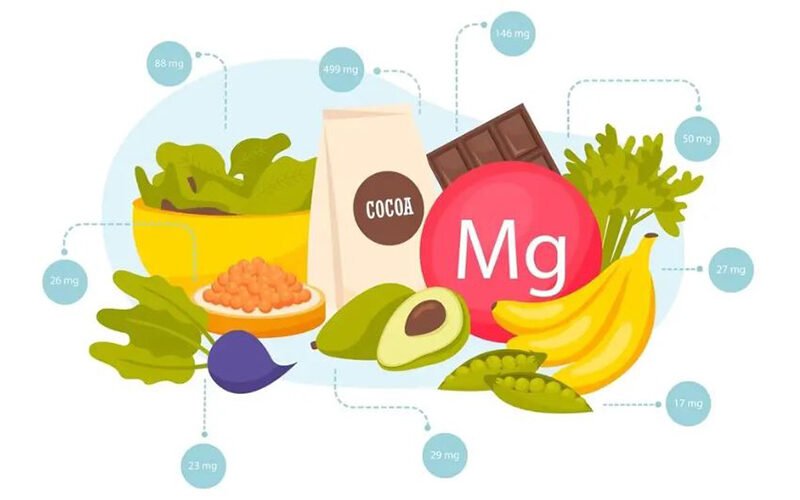Magnesium is a mineral crucial for hundreds of biochemical reactions taking place inside our bodies.
Among the rest, magnesium plays an essential role in supporting healthy nerve function, maintaining normal blood pressure, regulating muscle contractions, and promoting a strong immune system. It contributes to the structural development of the bones and is required for the synthesis of DNA, RNA, and the antioxidant glutathione.
However, despite the role it plays for the overall well-being of human body, many people don’t get enough of it, which can lead to certain health conditions.

In today’s fast-paced world, magnesium deficiency is increasingly common. Factors contributing to this deficiency include the consumption of over-processed foods, high dairy intake, aluminum exposure, alcohol consumption, aging, and certain health conditions such as Crohn’s disease and kidney disorders.
How can a person know if they have low levels of magnesium in their body?
There are a number of symptoms, and most common are:
- Seizures
- Muscle cramps and twitches
- Weakened bones and muscles
- Raised blood pressure
- Irregular heartbeats
- Asthma
- Reduced appetite
- Dizziness
- Migraines
- Bowel Disease
- Fatigue
- Insomnia
- Tooth Decay
- Anxiety
- Confussion
If you suspect that you are low in magnesium, you should see a doctor and run tests to determine if this is the cause of some of the symptoms listed above.

In any case, your dietary intake may significantly improve the levels of magnesium in your body.
Foods reach in magnesium include leafy green vegetables, whole grains, legumes, nuts, and seeds, with chia and pumpkin seeds being particularly abundant in this essential mineral.
Other excellent sources of magnesium are avocados, salmon, edamame, and tofu.
Opt for whole grains like brown rice, quinoa, and whole wheat bread instead of processed alternatives, and reduce high-dairy consumption. Additionally, minimize aluminum exposure by using aluminum-free cookware and personal care products.
If your magnesium levels remain low, consider taking supplements.
Please SHARE this article with your family and friends on Facebook.







